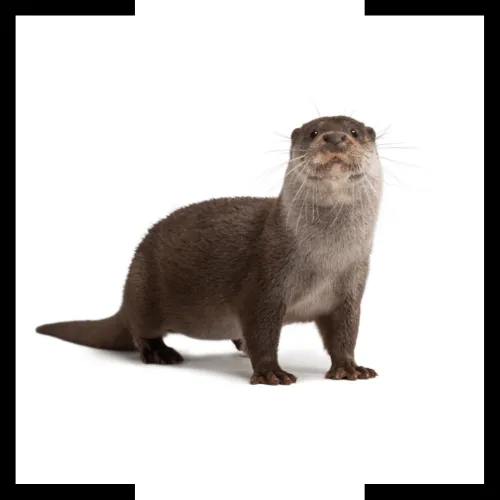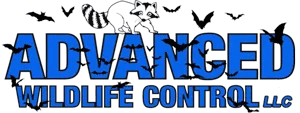Otter Removal & Exclusion

Identification
River otters are semi-aquatic mammals. They have sleek, powerful bodies, short legs, and webbed feet that also sport sharp, non-retractable claws. They have small heads, long whiskers, long necks, and flat, muscular tails. Their eyes and ears are small and located high on their heads. They are covered in a soft, thick underfur and a coarse, water-repellent outer fur ranging from brown to gray, while their undersides are typically silvery. Adults can weigh up to 33 pounds and grow as long as 5 feet. As you might expect, they are built to swim and do that well. They can even hold their breath and stay underwater for up to 8 minutes.
Habitat, Feeding Habits, And Behavior
River otters like to spend most of their time in the water. They can live in fresh and saltwater environments and hot and cold climates. They often occupy the same types of habitats as beavers. This includes rivers, lakes, streams, ponds, marshes, and more. Surprisingly, however, they are comfortable on land, too. They’ve ventured up to 18 miles inland in search of food. River otters are both carnivores and predators. Their primary diet includes fish, insects, frogs, turtles, and other small mammals.
They prefer clean, unpolluted surroundings away from human activity, but as their population increases, so do their conflicts with humans. River otters are often described as timid but friendly and sometimes even playful. However, just like most wildlife, they can be unpredictable and dangerous, especially when they feel threatened. Otter bites are infrequent, but they do happen. And you don’t have to be bitten to get sick from these animals. They can carry parasites and transmit zoonotic diseases like rabies, salmonellosis, tuberculosis, leptospirosis, and more, and inhabiting the same environment as them can put you at risk. While we need to take these health concerns seriously, they are not our greatest worry. Much more troubling is the damage that river otters do.
The Damage That River Otters Do
They can also damage structures, especially those made of wood. They like to seek shelter beneath decks and docks, in boathouses, and more. They have big, sharp incisors; those teeth don’t stop growing, and they chew on anything. They’ll tear your boat up if they can get into it. They are messy, unsanitary creatures that are known to defecate everywhere as well. They may be cute, but there is certainly nothing cute about that.
What To Do If You Have An Issue With River Otters
If you have a water source near your home or vacation property, spotting a river otter is not unusual, and it is not good news or something you should ignore. If they haven’t caused an issue yet, odds are it may happen.
Although they are a protected species in some states, they are not in Missouri because of the problems they cause. DIY attempts to trap these animals rarely work out well. Trapping, in general, is dangerous if you don’t have the proper equipment or know what you are doing. As one of the smartest animals on earth, river otters are quite clever and skilled at evading those traps. It often takes a professional to outsmart them and successfully end the issue.
Contact the friendly, experienced professionals at Advanced Wildlife Control when you need a pro. We take care of nuisance river otters swiftly and humanely and can help you establish safeguards to prevent them from returning. We are Missouri’s leading wildlife removal specialists and are ready to assist you.
